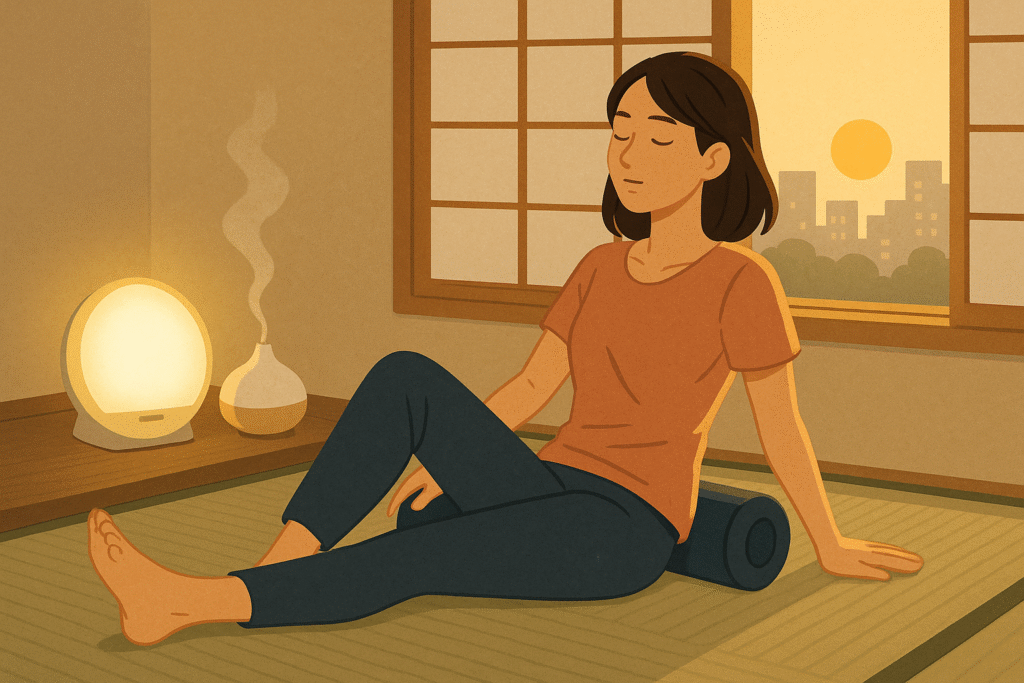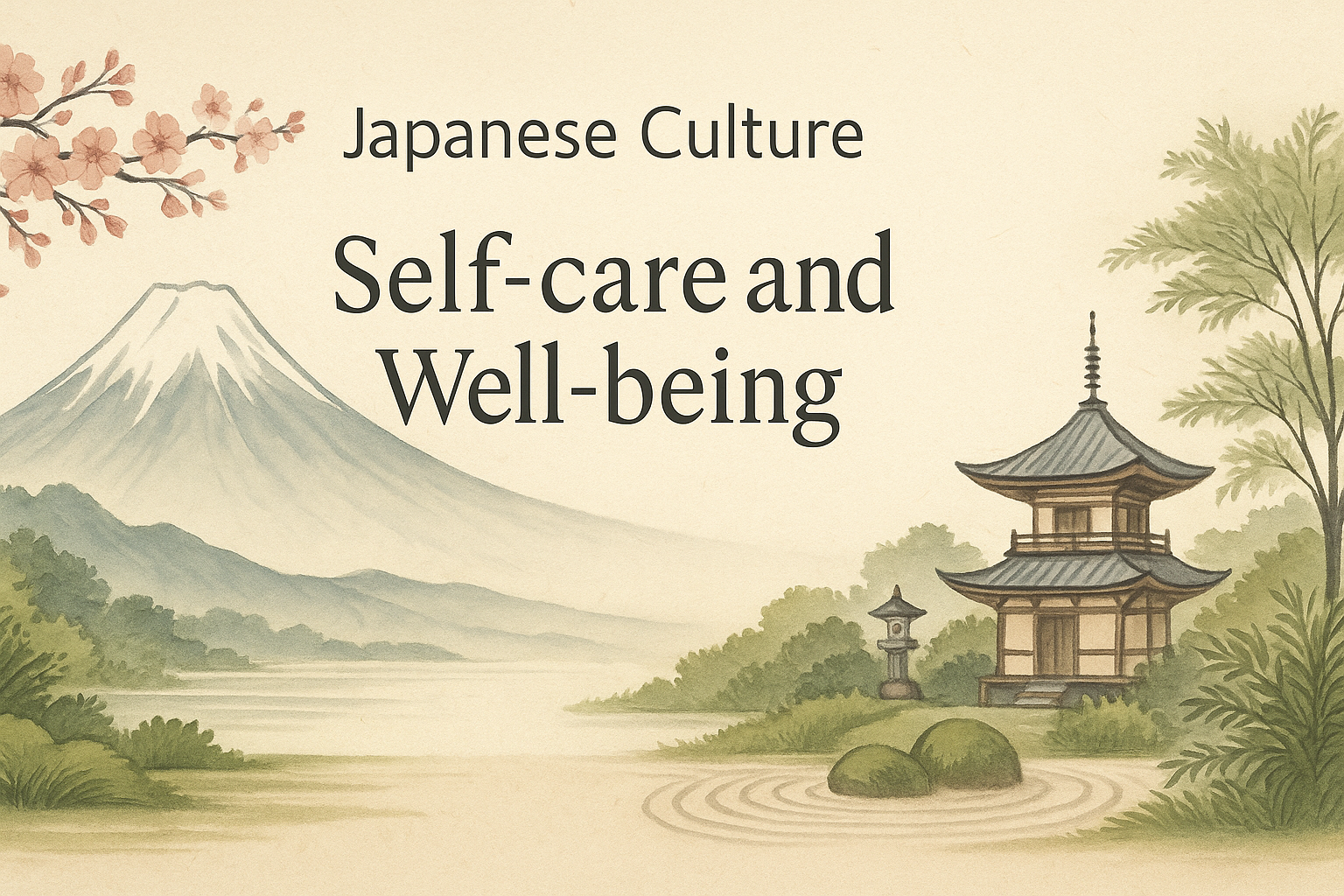Urban life in Japan often means stressful mornings—crowded trains, rushed schedules, and little time for self-care. But what if just five mindful minutes each day could help you reset your body and mind before work? This article introduces a Japanese-inspired morning routine designed to improve well-being, ease your commute, and bring balance to your day—even amid city chaos and rising tourism crowds. (Related article in Japanese | キャリア女子の“朝5分革命”!光・香り・刺激でリズムを整えるセルフケア術)
- Cultural background – The Japanese context of busy mornings
- Current situation – Why mornings feel overwhelming for professionals in Japan
- Approach: A mindful reset for urban mornings
- Tips for foreigners – Why this routine may work even better outside Japan
- Practical tips for a calm and productive morning
- Conclusion – Why five intentional minutes matter more than ever
Cultural background – The Japanese context of busy mornings
Japan is known for its intense work culture: long hours, late-night business dinners, and high expectations for professionalism. For many urban professionals, mornings are chaotic—early commutes, packed trains, and a constant rush to arrive on time.
Tokyo’s morning rush hour, for instance, is infamous for crowded trains where commuters stand packed shoulder to shoulder. This relentless pace often leaves little room for personal care, making mornings a stressful race rather than a moment of calm preparation.
In this environment, short, effective self-care routines have gained popularity as a way to restore balance and reclaim control over one’s day.

Current situation – Why mornings feel overwhelming for professionals in Japan
In Japan’s urban centers like Tokyo and Osaka, mornings are anything but peaceful for most residents. The day typically begins with a scramble: late nights, insufficient sleep, hurried grooming, and the challenge of squeezing into packed commuter trains—all before work has even started.
In recent years, this situation has grown even more difficult with the sharp rise in foreign tourists. Visitors unfamiliar with Japan’s commuter culture often carry large suitcases onto already-crowded trains, unintentionally adding to the congestion and slowing the flow of people during peak hours.
For many commuters, this means less personal space, longer delays, and a heightened sense of frustration.
And for women, the experience is often especially tough—societal expectations regarding appearance and professionalism add invisible pressures to an already crowded, stressful environment.
The cumulative effect?
- Poor sleep quality
- Disruption of natural body clocks
- Persistent fatigue
- Diminished concentration throughout the day
Without a deliberate and mindful way to reset in the morning, this exhausting cycle easily repeats itself, deepening stress and undermining overall well-being.
Approach: A mindful reset for urban mornings
Urban life in Japan—and increasingly in major cities worldwide—presents a difficult combination of stress factors every morning: rushed schedules, disrupted sleep patterns, demanding commutes, and dense crowds. These conditions fragment attention and exhaust mental and physical energy before the workday even begins.

The key challenge is not just physical fatigue, but the loss of control over one’s own pace and rhythm.
When mornings are driven entirely by external pressures, people become reactive rather than intentional, and stress accumulates over time.
This is why even a brief, structured morning routine can serve as a powerful personal reset.
The value lies not in complexity or duration, but in establishing deliberate moments that reconnect body and mind before the outside world takes over.
A 5-minute morning ritual works because it directly addresses the typical problems of city life:
- Irregular sleep-wake cycles: Reset by exposure to light
- High baseline stress: Soothed by pleasant scents
- Foggy mental state upon waking: Refreshed by sensory stimuli
- Disorderly start: Replaced by consistency and intentional rhythm
This conceptual approach offers a way to reclaim mornings as a calm, personal space—even in the midst of urban chaos.
A story – Case study from urban Tokyo
While many city dwellers face these morning challenges, one example illustrates how a small shift can make a big difference.
M-san, a team leader at a Tokyo company, found herself exhausted by late nights and relentless commuter stress.
She began experimenting with a 5-minute morning routine—a sunrise alarm clock, aroma diffuser, foam roller stretch, and minty mouthwash.
Within weeks, she noticed improved concentration, less morning anxiety, and even better skin condition.
Her experience reflects a growing trend:
Urban professionals reclaiming their mornings not through elaborate wellness programs, but through small, mindful rituals tailored to their hectic lives.
Tips for foreigners – Why this routine may work even better outside Japan
In many countries outside Japan, morning stress may look different: longer commutes by car, less public transport stress but more reliance on screen time and multitasking from the moment you wake up.
This 5-minute routine can help foreigners, especially those living abroad or expatriates, to cultivate a mindful start to their day—whether they face crowded cities or quiet suburban life.
Why it works abroad:
- More flexibility in home routines
- Easier adoption of smart devices (lighting, aromatherapy)
- Less cultural expectation to rush immediately into the day
Foreign readers can experiment with these sensory triggers to improve mornings that feel rushed, tech-driven, or disconnected from natural rhythms.
Practical tips for a calm and productive morning
Even small moments matter. Here’s how you can easily integrate these habits into your life, wherever you are.
✅ Sunrise alarm clock – Gently reset your body clock
Look for one with natural daylight settings (5000K–6500K) and gradual fade-in before your wake-up time.
✅ Aroma diffuser with timer – Set the right mood
Morning scents like citrus or mint can stimulate alertness; lavender in the evening can help you relax.
✅ Foam roller routine – Loosen up after sleep
Roll your back or thighs right after waking to improve circulation and ease into upright posture.
✅ Minty mouthwash – Refresh and awaken your senses
Menthol stimulates cold receptors and promotes wakefulness—perfect for foggy mornings.
✅ Consistency – The key to success
Repetition trains the mind: doing your routine at the same time, in the same order, lowers mental friction and builds habit strength.
Conclusion – Why five intentional minutes matter more than ever

In today’s fast-paced, always-connected world, mornings often set the tone for the entire day.
Japan’s cultural embrace of mindful routines offers a valuable lesson:
you don’t need an hour-long wellness practice to feel balanced—just five focused minutes.
These moments of preparation can reduce stress, boost mood and concentration, and help you transition gracefully from home life to work life—even if your commute is chaotic or your schedule demanding.
By focusing on small, sensory-based habits that awaken body and mind, you create a stable foundation—whether you’re working in Tokyo, New York, London, or anywhere else.
Start small. Be intentional. And let those five minutes give you back your mornings.


Comments